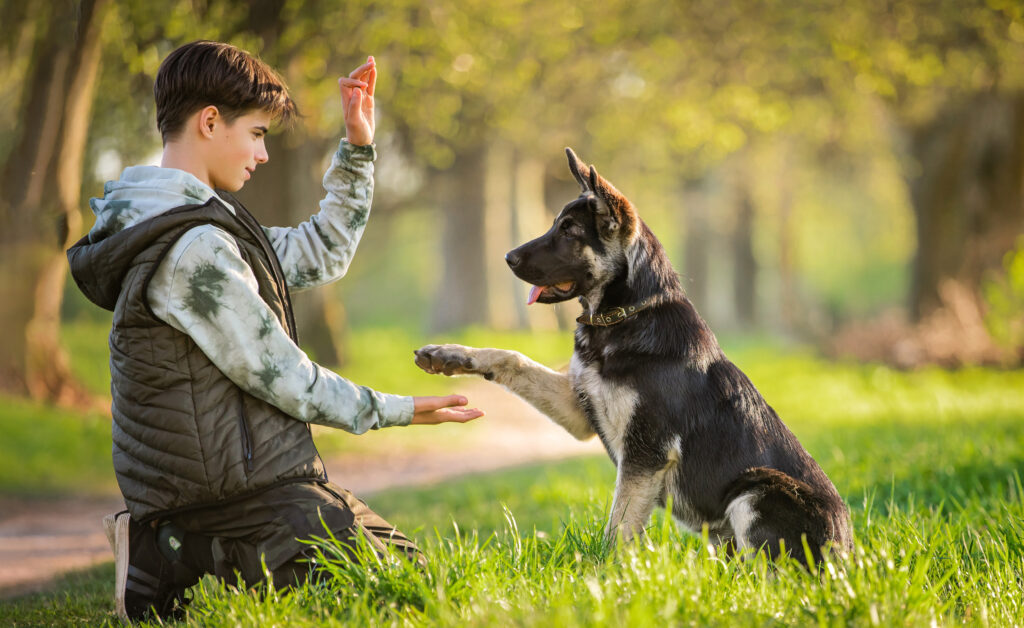Words Darcie Jennings, Founder & Head Trainer, CommuniCanine Training & Behavioral Counselling
Bringing a new puppy into your home is an exciting experience. Puppies are like sponges, soaking up information from their environment, so it’s crucial to provide them with the right foundation early on. Proper training, thoughtful socialization and recognizing and addressing any behavioural issues early ensure a happy, well-adjusted dog that can be a beloved member of your family for years to come.
In those first few weeks there’s a lot you can do to make their transition as smooth as possible.
Start by establishing a safe space. Puppies need a designated area to call their own, such as a crate or pen. This space becomes not only their quiet retreat but a safe place to confine them when you can’t supervise them or leave them at home alone.
You’ll also want to establish a schedule for feeding, naps, potty breaks and playtime. Consistency helps them learn quickly. When it comes to introducing family members or other pets, do so gradually. Early socialization is crucial, but it’s important not to overwhelm them.
You’ll also want to start rewarding good choices, like keeping four paws on the floor when greeting people and coming when called, and establishing good habits right away. This helps them understand what’s expected of them and fosters good behaviour from the start. It’s so much easier to teach good habits than to change bad ones.
In addition to establishing a routine at home, one of the most crucial aspects of raising your puppy is socialization. Socialization is much more than just introducing your puppy to new dogs and people. It’s about helping them feel comfortable and confident in a variety of situations and environments. Thoughtful socialization ensures that your puppy becomes well-rounded, adaptable and confident, which will ultimately result in a more balanced adult dog.
Socializing your puppy includes exposing them to a variety of environments, like parks, busy streets, and different types of surfaces (tile, wood, grass, etc.). You’ll also want to introduce your pup to a variety of noises, like vacuum cleaners, garbage trucks, airplanes and children playing.
Similarly, expose them to different types of people, including people in uniforms, wearing different types of hats or with mobility issues. Finally, gentle exposure to handling, like brushing, nail trimming, ear and teeth cleaning, ensures that your puppy is comfortable with regular grooming and vet exams which will benefit them throughout their life.
Socialization should be done gradually and positively. Never force your puppy into a situation where they feel overwhelmed, and always monitor their comfort level. The goal is to create positive associations with new experiences, ensuring they are adaptable and confident as they grow.
While much of your training can be done at home, there are times when hiring a professional may be necessary, especially if specific behavioural issues arise, like aggression, fear or separation anxiety. Puppies don’t grow out of problem behaviour, they grow into it, so having a professional there to guide you can be invaluable. Even if your puppy currently has no issues, joining a puppy class has so many benefits and can give you the perfect start you need.
The first few months of a puppy’s life are critical for setting them up for success. Establishing a routine, beginning basic training at home, providing thoughtful socialization, and recognizing early signs of behavioural issues can go a long way in ensuring that your puppy grows into a well-behaved, happy adult dog. With patience, consistency, and, if necessary, professional guidance, you’ll be well on your way to creating a strong bond and a lifelong relationship with your new furry friend.
www.communicanine.ca




